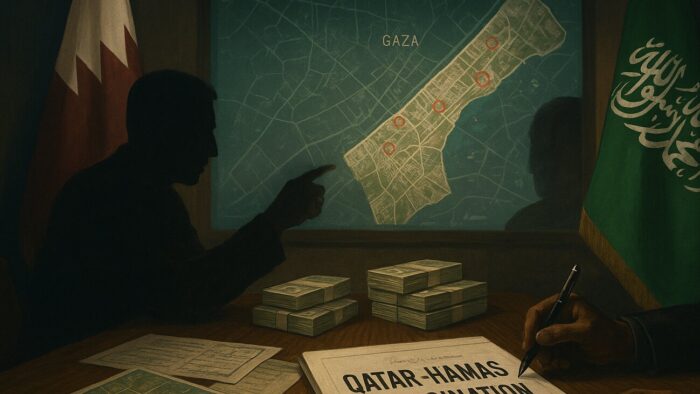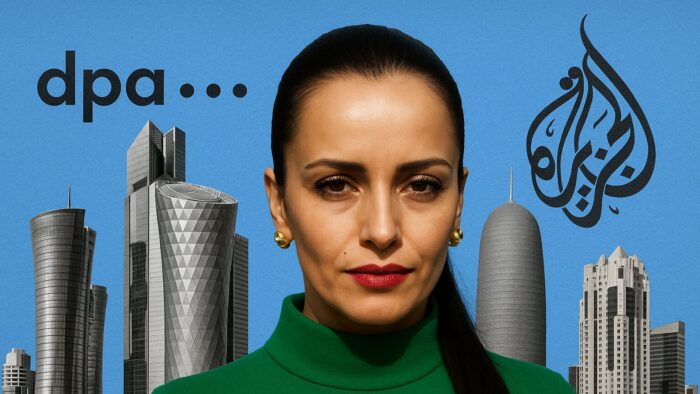Qatar’s attempt to globalize its gaming industry is the latest frontier in Doha’s ambitious soft power strategy. On 4 September 2025, MEMRI reported that Qatar had made a strategic entry into the global gaming sector, positioning itself as a key player in esports and digital entertainment as part of its broader efforts to enhance international influence. The article begins:
Last month, Qatar exhibited at the world’s largest gaming trade show, Gamescom 2025, held in Cologne, Germany August 20–24, reflecting Doha’s aim to promote itself as a nexus in the global creative economy. The Qatari pavilion was organized jointly by the Investment Promotion Agency of Qatar, known as Invest Qatar and Media City Qatar (MCQ). Both are state-sponsored institutions that are key to Doha’s strategy of positioning itself as a leading force in the media landscape. Together, they form Doha’s economic and cultural outreach, combining financial incentives with sector-specific expertise. Invest Qatar, established 2019, is Doha’s principal channel for securing foreign direct investment, assisting international enterprises with adherence to regulations and licensing procedures, as well as with partnerships with international companies.
Key Points
-
Qatar has strategically entered the global gaming industry, hosting esports events and supporting gaming startups as part of its soft power expansion beyond traditional sports and media.
-
The initiative is supported by state-backed investments and aims to position Doha as a regional hub for gaming, attracting international talent and increasing tourism.
-
This move aligns with Qatar’s Vision 2030 objectives, focusing on economic diversification, youth engagement, and enhancing the country’s global tech profile.
-
Analysts interpret Qatar’s gaming industry push as an effort to shape international perceptions, particularly among younger demographics, and to complement existing soft power assets like Al Jazeera and major sports events.
Crisis Diplomacy, Education, Mosques: How Qatar Leverages Soft Power to Improve its Global Standing
Qatar has systematically cultivated a multidimensional soft power portfolio that spans crisis diplomacy—brokering talks in global conflicts; education—funding elite universities and research centers; and religion—leveraging its wealth as a principal financier of European mosques, Islamic centers, and cultural projects, supporting over 140 such initiatives with substantial funding. In Europe, Qatar Charity channels funding into Islamic centers and youth organizations, as seen in Germany, where Qatari funding of mosques has drawn scrutiny, and in Brussels, where European Muslim Brotherhood youth groups sought Qatari backing.
In the US, President Trump’s 2024 election victory has led to dramatically increased Qatari outreach to right-wing outlets. Complementing these efforts, Qatar’s new Media City project partners with international news agencies to project a modern, open image—though critics warn of media influence risks—while elite universities like Education City in Doha attract global talent and foster academic diplomacy. Qatar’s approach is not limited to the West: religious delegations such as the IUMS scholars’ meetings with Taliban ministers reflect Doha’s bid for a role in hosting influential regional and religious actors.
This blend of cultural outreach, economic statecraft, and strategic media investments enables the tiny nation of Qatar to punch above way its weight in global affairs, even as scrutiny of its overseas funding and ideological ties grows.
External References:
- Qatar said to be leading funder of mosques in Europe
- Qatari involvement in US higher education
- New round of Gaza ceasefire talks in Doha: Where do Hamas, Israel stand?
Disclaimer
The Global Influence Operations Report (GIOR) employs AI throughout the posting process, including generating summaries of news items, the introduction, key points, and often the “context” section. We recommend verifying all information before use. Additionally, images are AI-generated and intended solely for illustrative purposes. While they represent the events or individuals discussed, they should not be interpreted as real-world photography.











